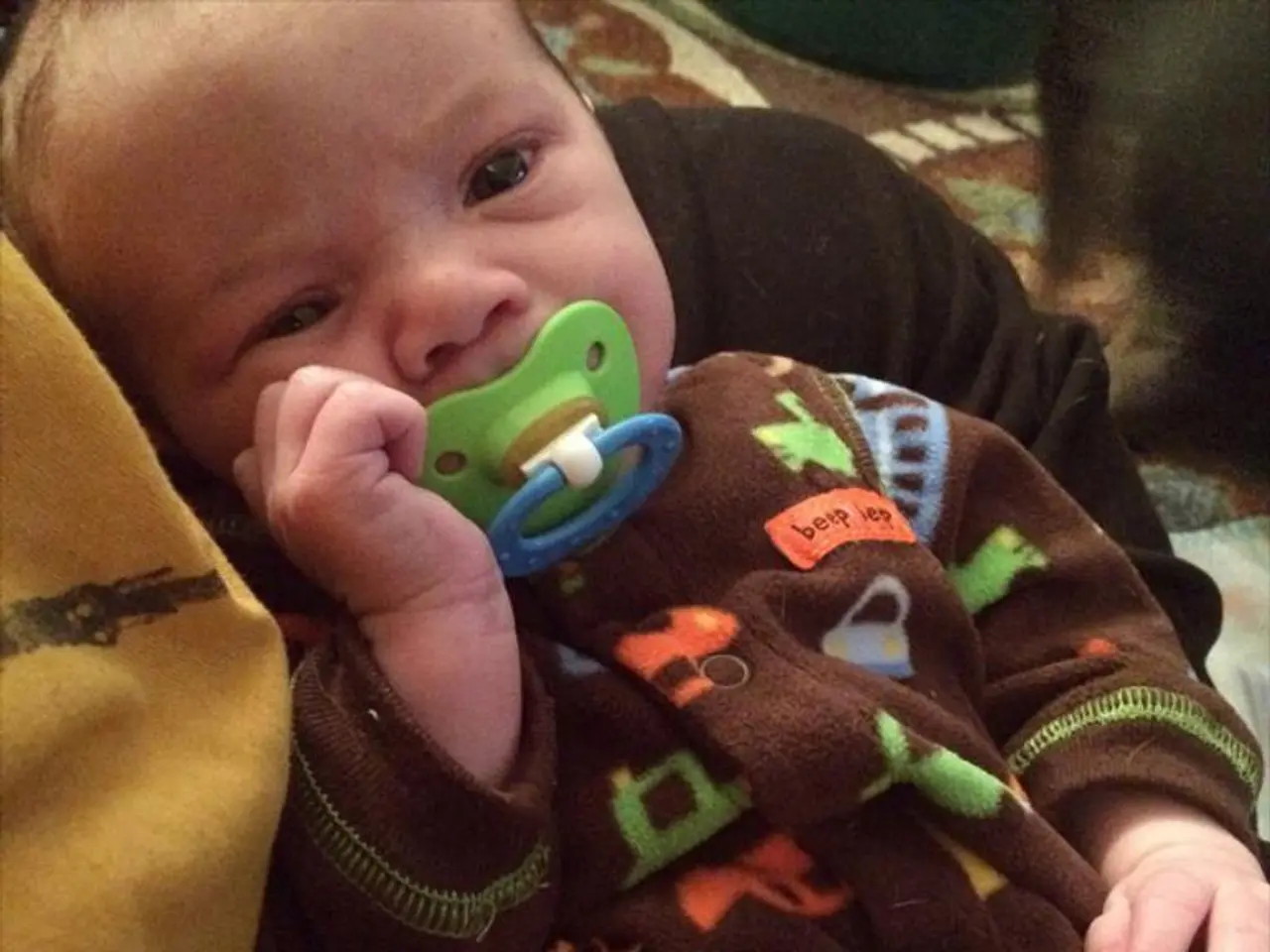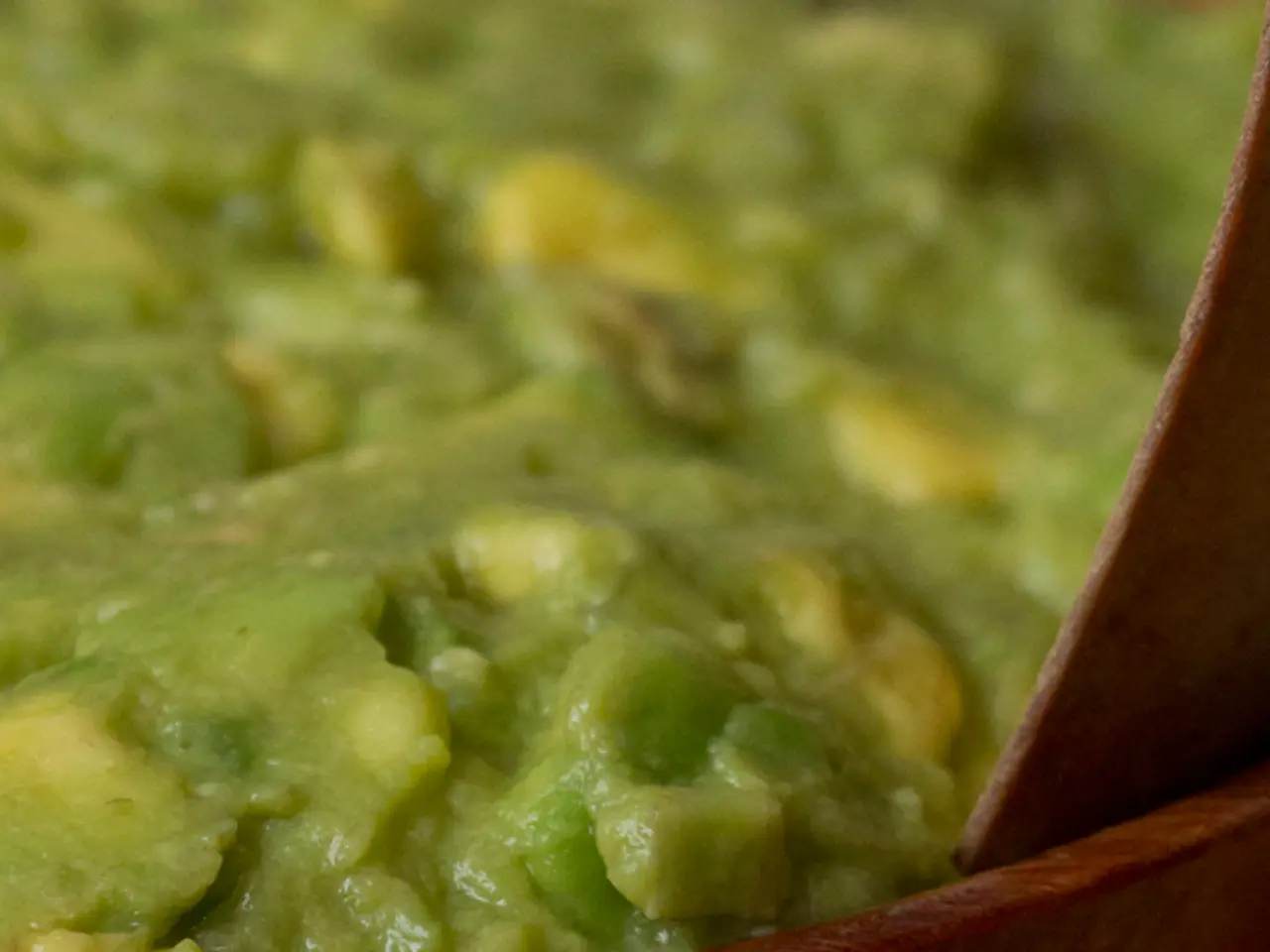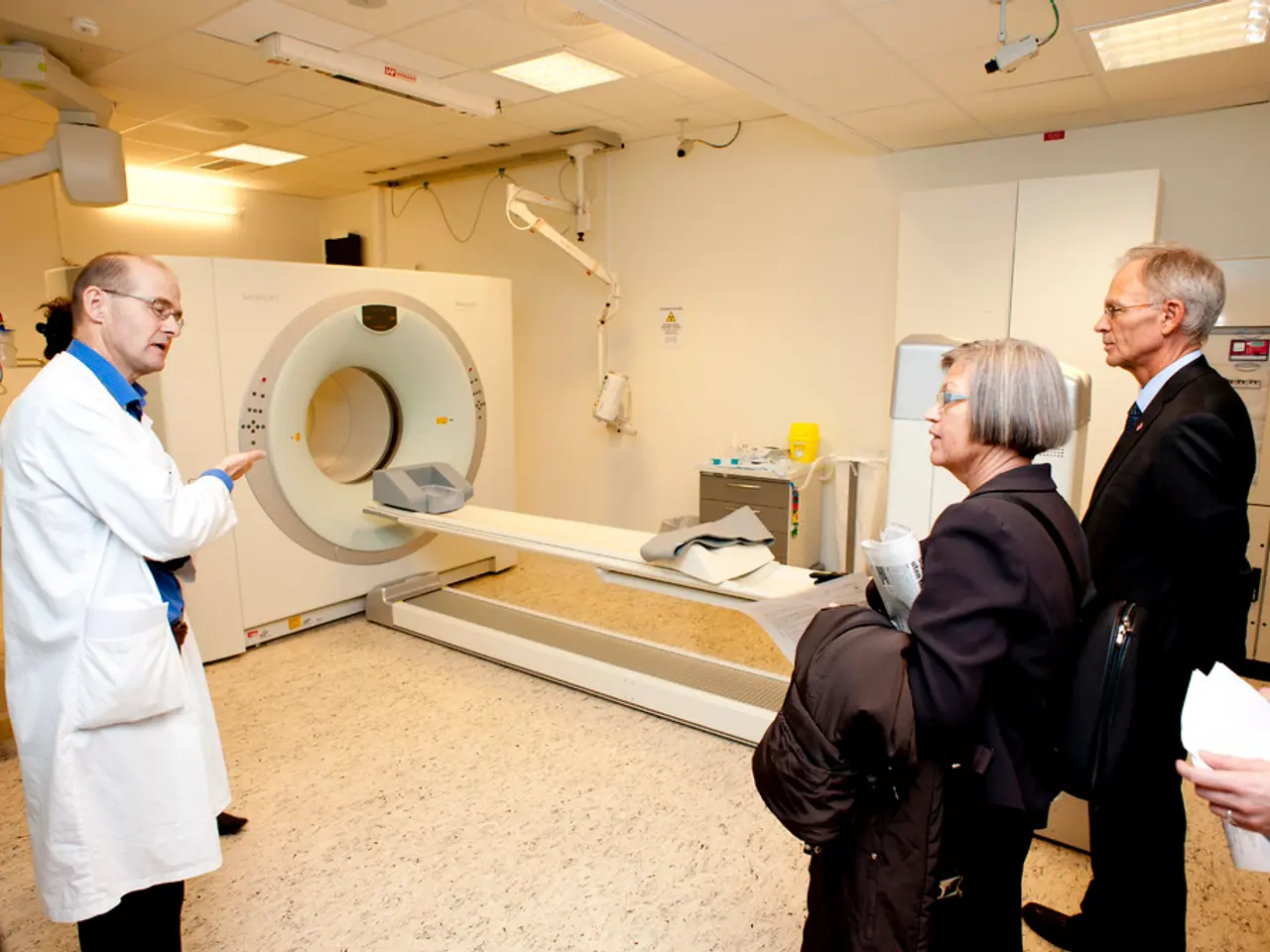Methods for releasing gas in an infant: Postures, approach, optimal moments, and additional tips
In the world of parenting, one question that often arises is the necessity of burping a baby after each feed. While it's a common practice, recent research and pediatric guidance suggest that burping may not be universally necessary for every baby.
According to current studies and expert advice, burping a baby is generally optional and not always essential. Babies can often burp on their own if they need to, reducing the need for forced burping[1][2][5]. This means that if you try to burp a baby after feeding and they do not burp within about a minute, you can stop without any concern[1].
Burping may help reduce spitting up, but it does not necessarily aid with crying or digestion[1][2]. It's important to note that the lack of burping is not harmful to the baby, as natural burping will occur as needed[1].
However, if a baby becomes fussy or shows signs of discomfort such as squirming or pulling away from the breast or bottle, it's a good idea to continue burping them[3]. Similarly, if a baby is bottle-fed, keeping them upright for 15 to 30 minutes after feeding can help prevent spitting up[4].
In such cases, strategies like massaging the belly, moving the legs, or holding and comforting the baby can be tried if burping does not seem to help[3]. It's also recommended to position a towel or burp cloth under the baby to catch any spit-up that may occur during burping.
Regarding breastfed babies, burping before switching breasts is advisable, and burping after they finish drinking from the bottle is also recommended[1][6]. Positioning a sleeping baby on the parent's chest or shoulder in an upright position can also help prevent spitting up[7].
It's essential to remember that babies tend to swallow air when eating, which can cause gas. If a baby has a history of spitting up or reflux, it's recommended to keep them upright for 15 to 30 minutes after feeding[8].
However, it's important to note that regular burping during and after meals may help relieve gas in some babies, but there is little to no strong scientific evidence that burping actively improves a baby’s digestion or mood[2][5].
In conclusion, while burping often helps reduce air swallowed during feeding, it is not universally necessary according to research and pediatricians. Parents can burp their babies if they want, but it is not harmful to skip it if the baby does not burp easily or shows no discomfort[1][2].
As always, it's crucial to follow the baby's cues and seek help from a pediatrician if a baby consistently has severe gas or spits up frequently. If a baby shows signs of needing to burp, such as becoming squirmy, fussy, or pulling away from the breast or bottle, they should be burped accordingly[3].
References: [1] HealthyChildren.org. (n.d.). Burping Your Baby. Retrieved October 10, 2022, from https://www.healthychildren.org/English/ages-stages/baby/feeding-nutrition/Pages/Burping-Your-Baby.aspx [2] Mayo Clinic. (2020, July 13). Burping your baby: When, why, and how. Retrieved October 10, 2022, from https://www.mayoclinic.org/healthy-lifestyle/infant-and-toddler-health/in-depth/burping/art-20046235 [3] The American Academy of Pediatrics. (n.d.). Burping Your Baby. Retrieved October 10, 2022, from https://www.healthychildren.org/English/ages-stages/baby/feeding-nutrition/Pages/Burping-Your-Baby.aspx [4] The American Academy of Pediatrics. (2019, May 1). Preventing Gastroesophageal Reflux in Infants. Retrieved October 10, 2022, from https://www.healthychildren.org/English/health-issues/conditions/gastro-intestinal/Pages/Preventing-Gastroesophageal-Reflux-in-Infants.aspx [5] The American Academy of Pediatrics. (n.d.). Burping Your Baby: Fact or Fiction. Retrieved October 10, 2022, from https://www.healthychildren.org/English/ages-stages/baby/feeding-nutrition/Pages/Burping-Your-Baby-Fact-or-Fiction.aspx [6] La Leche League International. (n.d.). Burping Your Baby. Retrieved October 10, 2022, from https://www.llli.org/faq/burping-baby.html [7] The American Academy of Pediatrics. (n.d.). Sleep Positioning and SIDS. Retrieved October 10, 2022, from https://www.healthychildren.org/English/safety-prevention/at-home/pages/Sleep-Positioning-and-SIDS.aspx [8] The American Academy of Pediatrics. (2021, January 15). Gastroesophageal Reflux in Infants and Children. Retrieved October 10, 2022, from https://www.healthychildren.org/English/health-issues/conditions/gastro-intestinal/Pages/Gastroesophageal-Reflux-in-Infants-and-Children.aspx
- A new study has found that the common practice of burping a baby after every feed might not be necessary for every baby.
- Some babies can naturally burp on their own, reducing the need for forced burping, as supported by current research and expert advice.
- Babies who become fussy or show signs of discomfort, like squirming or pulling away from the breast or bottle, should be burped accordingly.
- If a baby is bottle-fed, keeping them upright for 15 to 30 minutes after feeding can help prevent gas bloating.
- Parents should remember that regular burping can help relieve gas in some babies, but there is no strong scientific evidence that burping actively improves a baby's digestion or mood.
- For breastfed babies, burping before switching breasts and after they finish drinking from the bottle is advisable.
- In cases where a baby has a history of spitting up or reflux, keeping them upright for 15 to 30 minutes after feeding is recommended to prevent further discomfort.




